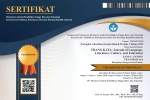The Democratisation of The Literary System: A Case Study of The Spanish Love Deception
DOI:
https://doi.org/10.54923/jllce.v5i1.123Keywords:
Elena Armas, gatekeepers, literary system, Polysystem Theory, self-publishingAbstract
The digitalisation of literary products, online publishing and distribution services have revolutionised the literary market and shifted power dynamics within the literary system. Self-publishing, as a significant outcome of this transformation, allows authors to bypass traditional gatekeepers, such as publishers, reducing costs and enabling greater autonomy. This article uses Polysystem Theory to analyse the changing roles and powers within the literary system, with a case study of The Spanish Love Deception by Elena Armas. Through a qualitative analysis of the novel’s publication journey, the study demonstrates how self-publishing has affected traditional gatekeeping but has not completely replaced publishers. Instead, publishers have adapted, using self-published works to identify successful authors and manuscripts, leading to a more collaborative coexistence. The case study analysis builds on what was hinted by previous research and highlights that while digitalisation and self-publishing have shifted the balance of power, they have not destabilised the literary system. Rather, they have democratised gatekeeping, benefiting both consumers and producers. However, the impact of this transformation on literary systems remains uncertain and further research is needed to assess the long-term implications for global publishing dynamics.
Downloads
Downloads
Published
How to Cite
Issue
Section
License
Copyright (c) 2024 Giulia Cavalli

This work is licensed under a Creative Commons Attribution-ShareAlike 4.0 International License.





